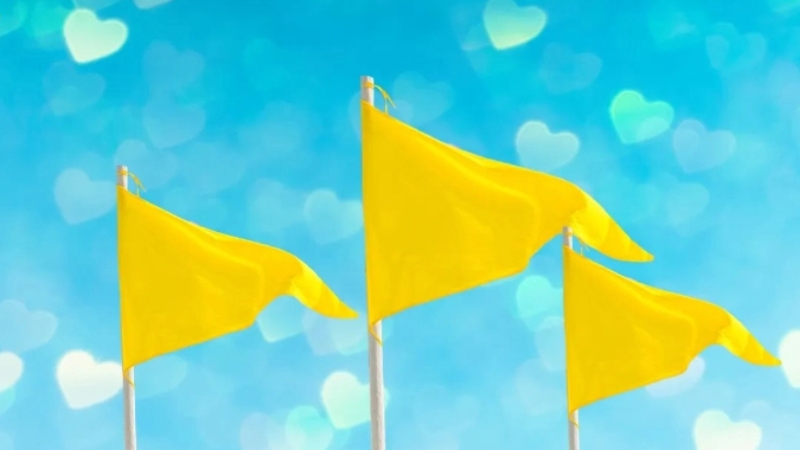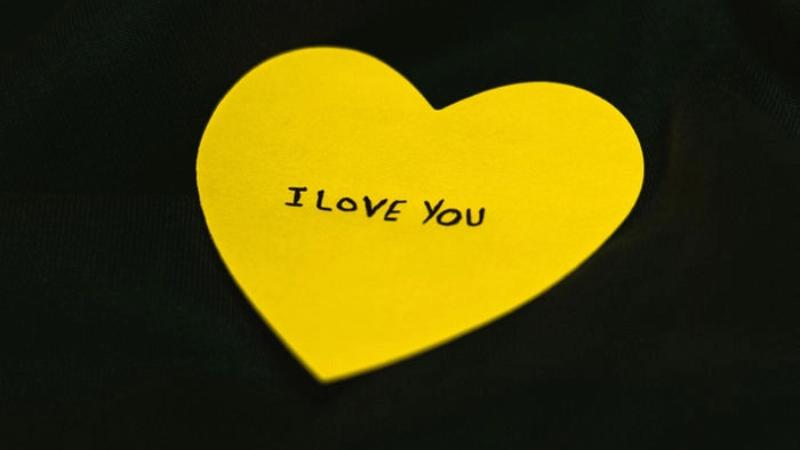Have you ever heard the terms “green flags” and “red flags” in a romantic relationship? Well, there’s another concept called “yellow flags” that you should know about. So, what are yellow flags and how do they differ from the other two? Let’s dive in and explore the world of relationship flags together.
1 What is a Yellow Flag?
Yellow flags are signs of potential issues or dangers in a romantic relationship. They serve as a warning and indicate that something might be amiss. However, unlike red flags, which are obvious deal-breakers, yellow flags are fixable if both partners are willing to work on them. These flags are a reminder to proceed with caution and carefully consider your decisions regarding the relationship. It doesn’t mean you should end things immediately, but rather take the time to assess and evaluate if the relationship is right for you.
 What is a Yellow Flag?
What is a Yellow Flag?
2 Difference Between Yellow, Green, and Red Flags
In the context of relationships, yellow, green, and red flags indicate different levels of safety and healthiness. Here’s how they differ:
- Red Flags: These are warning signs of potential danger that can negatively impact your mental and physical health. They are deal-breakers and indicate that the relationship may be toxic or unhealthy.
- Yellow Flags: These flags signal potential issues that need attention and resolution. While not as dangerous as red flags, if left unaddressed, they can lead to serious problems in the future.
- Green Flags: These are positive signs of a healthy and promising relationship. They indicate that the relationship is likely to be long-lasting and fulfilling.
 Difference Between Yellow, Green, and Red Flags
Difference Between Yellow, Green, and Red Flags
3 Zodiac Signs Prone to Yellow Flags
While it’s difficult to pinpoint specific zodiac signs as being more prone to yellow flags, as each individual is unique, we can look at certain traits commonly associated with some signs that might make them more likely to exhibit these warning signs:
- Pisces
- Aquarius
- Capricorn
- Sagittarius
- Scorpio
Keep in mind that any zodiac sign can exhibit yellow flags depending on the circumstances and their individual personalities.
 Zodiac Signs Prone to Yellow Flags
Zodiac Signs Prone to Yellow Flags
4 Signs of Yellow Flags in a Relationship
Here are some common yellow flags that you might encounter in a relationship:
- They want to spend all their time with you, possibly indicating codependency or a lack of independence.
- They have no friends or too many friends, which could suggest an inability to form healthy relationships.
- They are unemployed or in financial debt, which can cause stress and affect your relationship negatively.
- They have no hobbies or interests, which may lead to a lack of passion and personal growth.
- They are frequently late, showing a lack of respect for your time.
- They don’t share anything about their family, which could indicate secrecy or a troubled relationship with their family.
- They blame their ex entirely for past relationship issues, refusing to take any responsibility.
- They have never had a long-term relationship, which could suggest a fear of commitment or an inability to maintain a healthy relationship.
- They don’t respect your personal boundaries, indicating a lack of regard for your needs and wishes.
- They never talk about the future with you, which could mean they don’t see a long-term future with you.
 Signs of Yellow Flags in a Relationship
Signs of Yellow Flags in a Relationship
5 How to Deal with Yellow Flags in a Relationship
Open and Honest Communication
Once you’ve identified yellow flags, it’s crucial to communicate your concerns openly and honestly with your partner. Choose an appropriate time and place to have this conversation, and approach it with respect and a willingness to listen. Avoid placing blame or criticizing, and instead, focus on sharing your feelings and perceptions.
Work Together to Find Solutions
After sharing your concerns, it’s important to work together to find solutions. Be open to compromise and willing to make changes for the betterment of your relationship. If needed, seek help from a relationship counselor or therapist to guide you through this process.
 How to Deal with Yellow Flags in a Relationship
How to Deal with Yellow Flags in a Relationship
Patience and Understanding
Resolving yellow flags takes time and patience. Understand that both of you need to adjust and adapt, and don’t get discouraged if changes don’t happen overnight. Continue to work together and remain committed to making your relationship healthier.
Reevaluate Your Relationship
If, despite your best efforts, you find that the yellow flags are not improving, it’s time to reassess your relationship. Ask yourself if the relationship is truly fulfilling and if you want to continue investing in it. Be honest with yourself and consider what is best for your well-being.
 Patience and Understanding are Key
Patience and Understanding are Key
Source: hellobacsi































